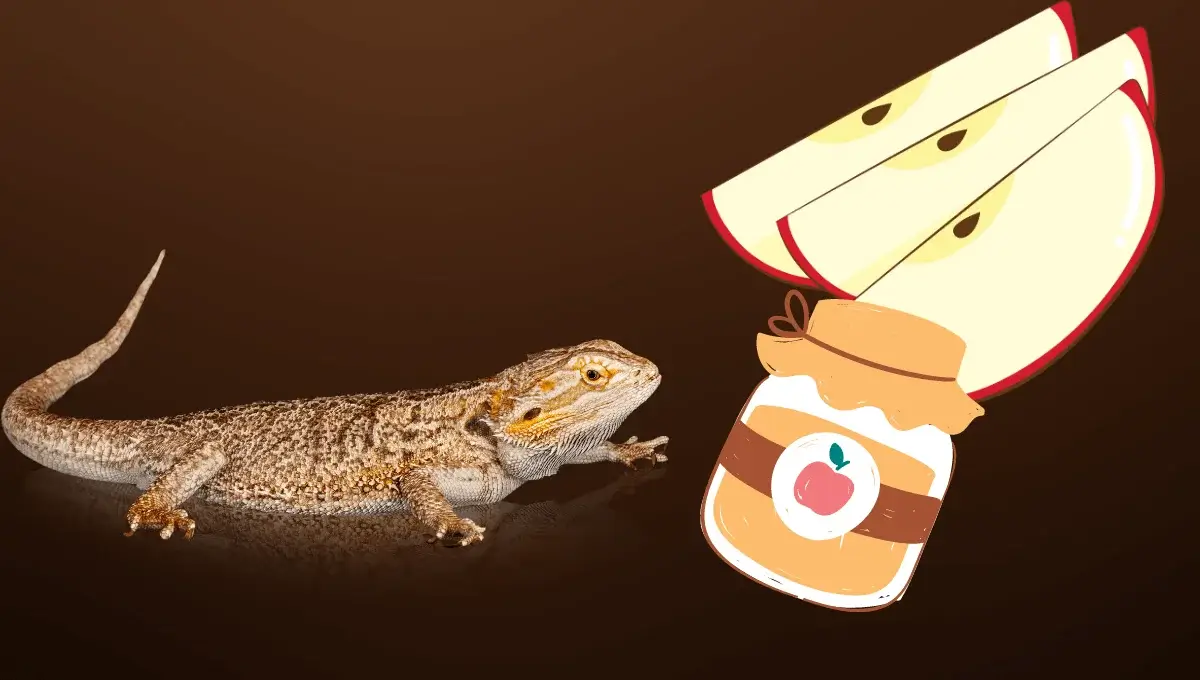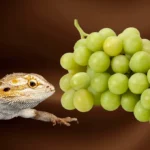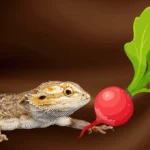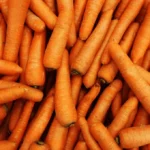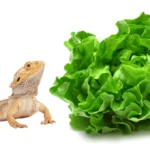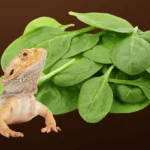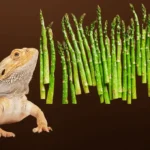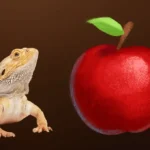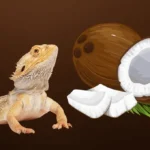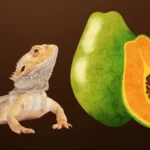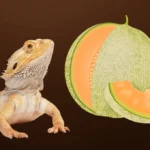Bearded dragons are popular reptiles kept as pets due to their docile nature and relatively easy care requirements. However, ensuring they receive the right diet is crucial to their health and well-being. A bearded dragon’s diet mainly consists of insects, leafy greens, and some fruits.
While fruits are generally safe in moderation, processed or altered forms of fruits, such as applesauce, may not always be ideal. This article explores whether applesauce is a safe and suitable option for bearded dragons, covering its nutritional value, potential risks, and guidelines for feeding.
What is Applesauce?
Applesauce is a puree made from cooked apples, sometimes sweetened with added sugar, and often includes spices like cinnamon. While it’s a popular food for humans, especially as a snack or side dish, its suitability for bearded dragons depends on several factors, including its ingredients and preparation method.
Nutritional Composition of Applesauce
Understanding the nutritional composition of applesauce is essential in determining whether it’s a good fit for a bearded dragon’s diet. Here are some of the key nutritional components:
- Carbohydrates: Applesauce is primarily composed of carbohydrates, mainly from natural sugars found in apples.
- Vitamins: It contains some vitamins, particularly Vitamin C and Vitamin A, which are important for the immune system and overall health.
- Fiber: Applesauce contains dietary fiber, which aids in digestion.
- Sugars: Natural and added sugars are present, which can be a concern for bearded dragons if consumed in excess.
Can Bearded Dragons Eat Applesauce?
Natural vs. Store-Bought Applesauce
The safety and suitability of applesauce for bearded dragons largely depend on whether it is homemade or store-bought.
Natural, Homemade Applesauce: If made from scratch with only apples and no added sugars, preservatives, or spices, applesauce can be safer for bearded dragons in very small quantities.
Store-Bought Applesauce: Store-bought varieties often contain added sugars, preservatives, and spices, which can be harmful to bearded dragons. These ingredients can cause digestive issues, weight gain, and other health problems.
Nutritional Benefits of Applesauce for Bearded Dragons
While applesauce is not a necessary or recommended part of a bearded dragon’s diet, there are a few potential benefits if it is made from natural ingredients without any additives.
1. Source of Vitamins
Applesauce contains Vitamin C and Vitamin A, both of which can support immune function and overall health in bearded dragons. However, these vitamins are also available in other, more suitable foods for bearded dragons, such as leafy greens and certain vegetables.
2. Digestive Aid
The dietary fiber in applesauce can help with digestion, particularly in bearded dragons that may be experiencing constipation. However, this benefit must be weighed against the potential risks, especially if the applesauce contains added sugars.
Risks of Feeding Applesauce to Bearded Dragons
Despite some potential benefits, feeding applesauce to bearded dragons comes with several risks that pet owners should be aware of.
1. High Sugar Content
Even natural apples contain sugars, and when they are cooked down into applesauce, the sugar concentration can become higher. Store-bought applesauce often has additional sugars, which can lead to obesity, fatty liver disease, and other health issues in bearded dragons.
2. Lack of Essential Nutrients
Applesauce does not provide the essential nutrients that bearded dragons need in their diet, such as calcium and protein. Over-reliance on fruit-based foods can lead to nutritional imbalances, particularly if they replace more nutrient-dense vegetables and insects.
3. Potential for Digestive Issues
The consistency of applesauce may be difficult for some bearded dragons to digest, leading to gastrointestinal upset, including diarrhea. The added sugars and preservatives in store-bought varieties can exacerbate these issues.
How to Safely Offer Applesauce to Your Bearded Dragon
If you choose to offer applesauce to your bearded dragon, it’s crucial to do so in a controlled and safe manner. Here are some guidelines to follow:
1. Opt for Homemade Applesauce
If you decide to give your bearded dragon applesauce, it’s best to make it at home using only apples, without any added sugars, spices, or preservatives. This way, you can control the ingredients and ensure that it is as safe as possible.
2. Offer in Small Quantities
Applesauce should be considered a rare treat rather than a regular part of your bearded dragon’s diet. Offer only a small amount, about a teaspoon, once a month or less frequently. This limits the potential for negative health impacts.
3. Monitor Your Bearded Dragon
After offering applesauce, observe your bearded dragon for any signs of digestive upset or behavioral changes. If your dragon exhibits any adverse reactions, discontinue feeding applesauce and consult with a veterinarian.
Alternative Treats to Applesauce
If you’re looking for healthier alternatives to applesauce, consider offering your bearded dragon fresh, whole fruits in moderation. Here are some suitable options:
| Fruit | Nutritional Benefits | Feeding Frequency |
|---|---|---|
| Blueberries | Low in sugar, high in antioxidants | Once a week |
| Mango | Rich in Vitamin A, supports digestion | Once a week |
| Strawberries | High in Vitamin C, antioxidant-rich | Once a week |
| Papaya | Vitamin A, hydration, fiber | Once every 1-2 weeks |
| Apples (fresh, peeled, and chopped) | Hydration, source of fiber | Once a week |
The Importance of a Balanced Diet for Bearded Dragons
A balanced diet is essential for the health and longevity of your bearded dragon. While fruits like applesauce can occasionally be offered as treats, they should never replace the staple components of their diet. A well-rounded diet for a bearded dragon typically includes:
1. Leafy Greens and Vegetables
Leafy greens such as collard greens, mustard greens, and dandelion greens should make up the bulk of a bearded dragon’s plant-based diet. These greens are rich in calcium, vitamins, and other essential nutrients.
2. Insects
Insects such as crickets, mealworms, and dubia roaches are vital for providing protein and fat. Younger bearded dragons require more insects in their diet compared to adults.
3. Occasional Fruits
Fruits can be offered as occasional treats, providing hydration and a source of vitamins. However, they should make up only a small portion of the diet.
4. Calcium and Vitamin Supplements
Supplementing your bearded dragon’s diet with calcium and vitamin D3 is crucial to prevent metabolic bone disease (MBD) and ensure proper bone health.
Conclusion
While applesauce can be consumed by bearded dragons in small, controlled amounts, it is not an ideal or necessary food for them. The high sugar content, potential for digestive issues, and lack of essential nutrients make applesauce a less-than-ideal choice compared to fresh, whole fruits. If you decide to offer applesauce, it should be homemade, free from additives, and given sparingly. For a healthier approach, focus on providing a balanced diet rich in leafy greens, insects, and occasional whole fruits to ensure your bearded dragon’s optimal health and well-being.
